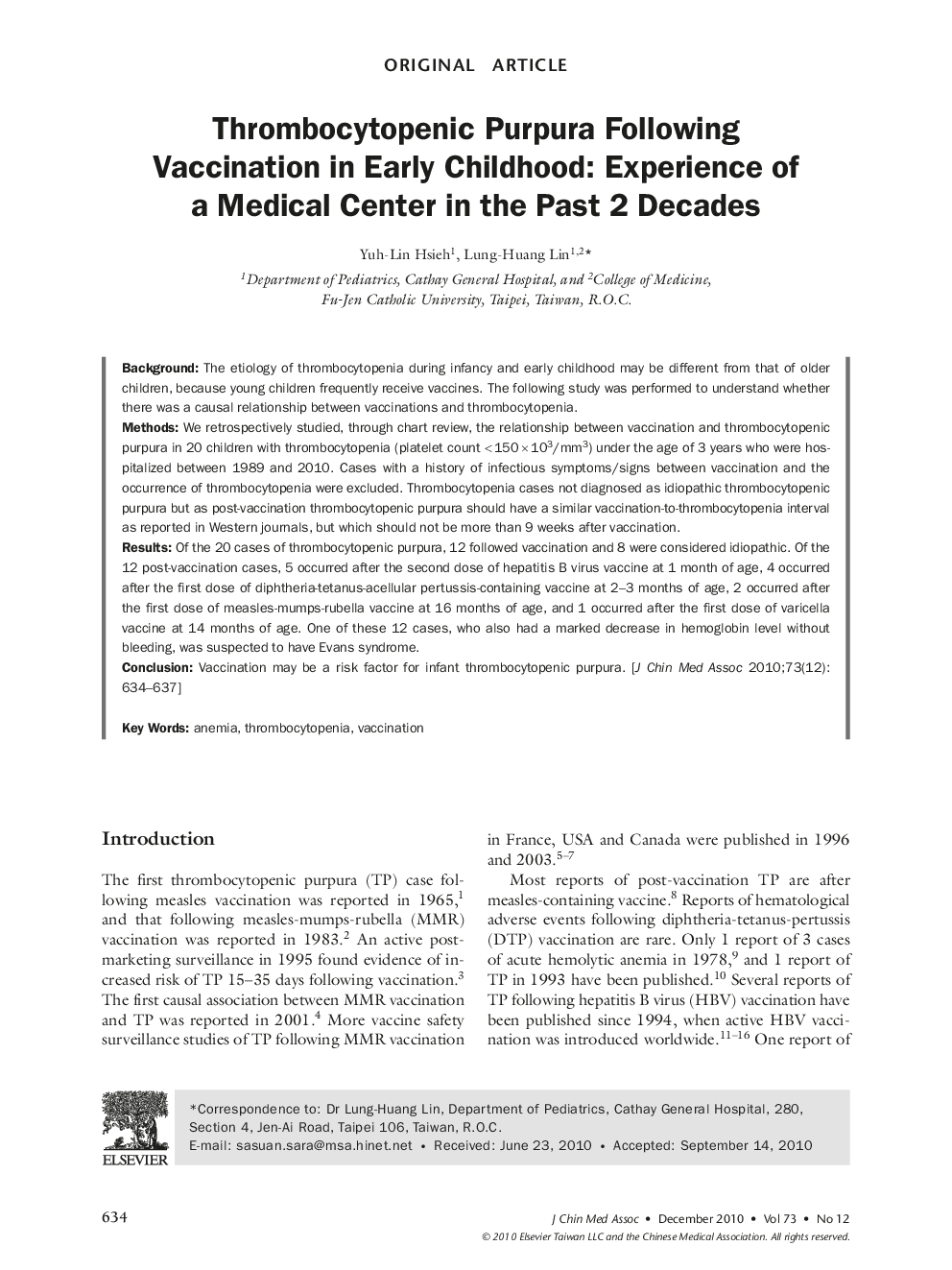| Article ID | Journal | Published Year | Pages | File Type |
|---|---|---|---|---|
| 3477066 | Journal of the Chinese Medical Association | 2010 | 4 Pages |
BackgroundThe etiology of thrombocytopenia during infancy and early childhood may be different from that of older children, because young children frequently receive vaccines. The following study was performed to understand whether there was a causal relationship between vaccinations and thrombocytopenia.MethodsWe retrospectively studied, through chart review, the relationship between vaccination and thrombocytopenic purpura in 20 children with thrombocytopenia (platelet count < 150 × 10(3)/mm(3)) under the age of 3 years who were hospitalized between 1989 and 2010. Cases with a history of infectious symptoms/signs between vaccination and the occurrence of thrombocytopenia were excluded. Thrombocytopenia cases not diagnosed as idiopathic thrombocytopenic purpura but as post-vaccination thrombocytopenic purpura should have a similar vaccination-to-thrombocytopenia interval as reported in Western journals, but which should not be more than 9 weeks after vaccination.ResultsOf the 20 cases of thrombocytopenic purpura, 12 followed vaccination and 8 were considered idiopathic. Of the 12 post-vaccination cases, 5 occurred after the second dose of hepatitis B virus vaccine at 1 month of age, 4 occurred after the first dose of diphtheria-tetanus-acellular pertussis-containing vaccine at 2-3 months of age, 2 occurred after the first dose of measles-mumps-rubella vaccine at 16 months of age, and 1 occurred after the first dose of varicella vaccine at 14 months of age. One of these 12 cases, who also had a marked decrease in hemoglobin level without bleeding, was suspected to have Evans syndrome.ConclusionVaccination may be a risk factor for infant thrombocytopenic purpura.
